I’m a Doctor and Here’s How to Prevent Severe Illness From COVID
Everything you need to know about the latest variant – including how to protect yourself from it.
The latest variant, “Pirola” or “BA.2.86,” is spreading across the country, with infections on the rise. “The recent spike in cases has left many people concerned and looking for ways to protect themselves and their loved ones,” Dana Mincer, DO, a Philadelphia family practice and urgent care physician, tells Newsful. In a new interview, she discusses the latest spike in cases, characteristics of the current variant and offers crucial tips on how to avoid catching COVID-19.
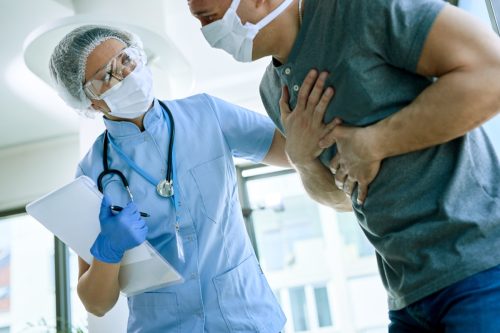
Dr. Mincer explains that waves of infection have marked the pandemic, and spikes in cases have, unfortunately, become a recurring pattern. “The recent surge in cases can be attributed to various factors, including the emergence of new variants, changes in public health measures, and vaccine distribution challenges,” she says.

While variants of the SARS-CoV-2 virus, which causes COVID-19, have been a consistent concern throughout the pandemic, each is a little different. “These variants can differ in terms of transmissibility, severity of illness, and vaccine effectiveness. They do this mostly by means of small mutations in various parts of the virus,” explains Dr. Mincer.
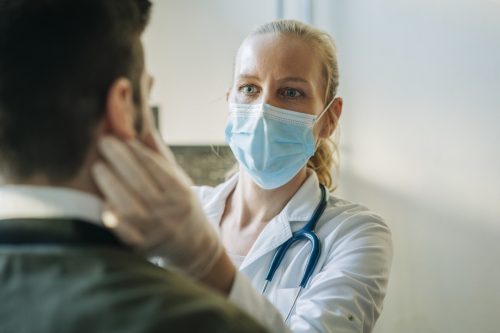
The most dominant nationwide virus strain right now is EG.5, followed closely by FL.1.5.1. According to Mincer, the original omicron variant is gone. “The most recent variants have raised concerns due to their increased transmissibility, which can lead to more rapid and widespread infections,” she says. “It’s important to note that data is showing these new variants are not more dangerous than previous variants – this is likely due to a combination of prior exposure and vaccination, which helps us retain partial immunity to these new variants.”

Dr. Mincer maintains that patients are always asking her what they can do to avoid getting COVID-19. However, she suggests a different approach. “I like to think more in terms of what we can do to prevent severe illness from COVID-19,” she says. “At this point, if you have a job or especially young kids, it is going to be difficult to avoid coming into contact with the virus. So, your approach should be taking proactive steps to avoid severe illness if and when you do get infected.”
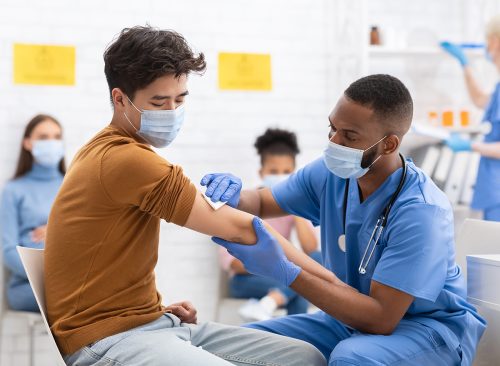
A key way to avoid severe illness is to get vaccinated. “As per the CDC, vaccination remains one of the most effective ways to protect yourself and others from severe illness and transmission,” Dr. Mincer says.

If you don’t want to get sick at all, avoid crowded indoor spaces, Dr. Mincer says. “Time in crowded, poorly ventilated indoor areas can increase the risk of transmission of ALL viruses and illnesses.”

Dr. Mincer also recommends frequent handwashing. “Wash your hands with soap and water for at least 20 seconds, especially after being in public spaces or touching surfaces,” she says.

Dr. Mincer also suggests staying informed. “Keep up to date with local COVID-19 guidelines and adjust your activities accordingly, especially when cases are on the rise,” she says.
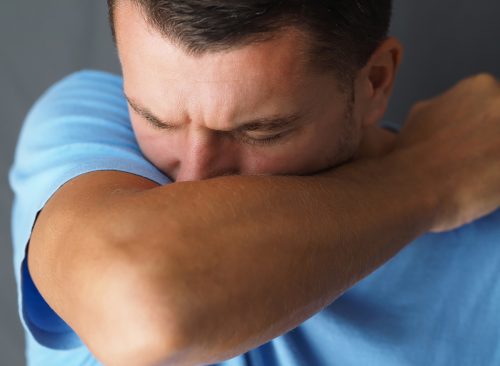
Practicing good respiratory hygiene is also key. “Cover your mouth and nose with a tissue or your elbow when coughing or sneezing, and dispose of tissues properly,” says Dr. Mincer. “If you are sick with respiratory symptoms and you have to be around others, masking will help to decrease the chances of transmission.”
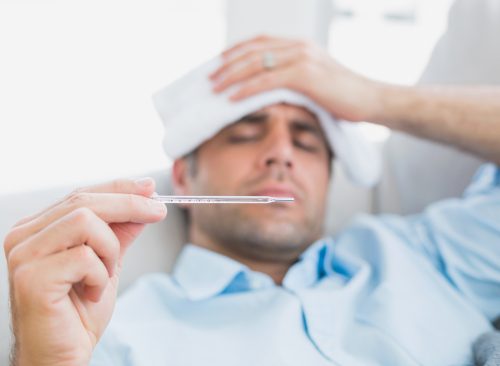
An obvious way to avoid the virus is to keep your distance from people who are sick. “If someone you know is sick with COVID-19 or displaying symptoms, maintain distance and encourage them to get tested and self-isolate. But folks, this is applicable to all illnesses if you want to minimize your chance of getting ill,” Dr. Mincer says.
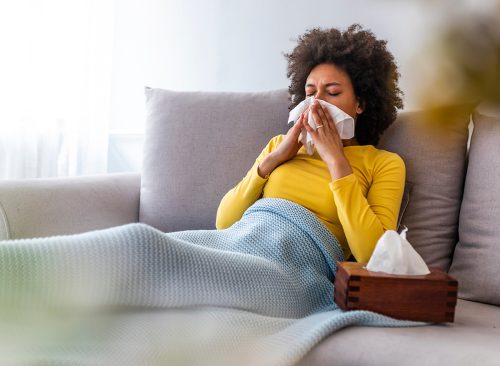
If you think you are infected or test positive, isolate. “If you test positive for COVID-19 or have been in close contact with someone who has, follow quarantine and isolation guidelines to prevent further spread,” Dr. Mincer says.

The vital thing to do is to prioritize your nutrition with the 85/15 rule, says Dr. Mincer. “85% of the time, eat from the earth and give yourself some leeway about 15% of the time,” she suggests. “This is the primary defense, your ‘first-line medicine’ and mechanism against ALL illnesses.” This includes avoiding processed foods and paying attention to ingredients. “My general rule of thumb is if it contains a bunch of ingredients that you cannot pronounce, it’s probably not what you want to be putting into your body most of the time. Remember, food is medicine.”
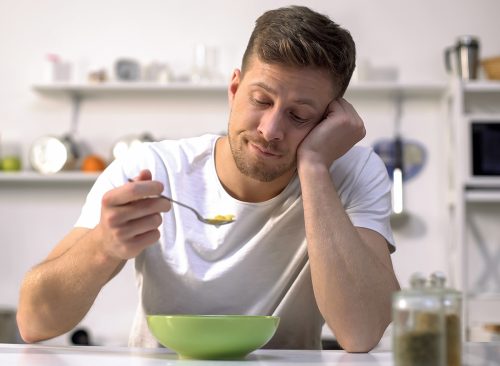
Dr. Mincer also recommends avoiding spiking your blood sugar. “This means eating in a way that maintains stability,” she says. “Choose foods that are naturally low in sugar. Carbohydrates are sugar. So eating a bowl of cereal in the morning for breakfast is just a large sugar dump on your body.” She explains that “sugar dumps” damage the internal linings of your blood vessels slowly over time and cause inflammation in your body. “Inflammation in your body makes it harder to fight off viruses,” Dr. Mincer points out. “So choose proteins and vegetables 85% of the time. Combine fresh fruit with healthy protein or healthy fats in order to decrease the sugar spikes in your blood.”
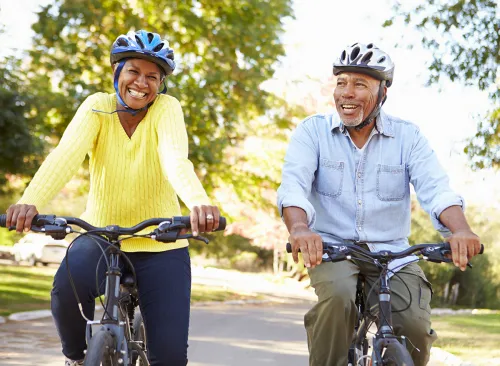
Physical activity is a must, says Dr. Mincer. “Exercise on a regular basis to maintain a healthy body. I don’t care what you do as long as you do it. I’m a fan of getting the most bang for your buck. As a busy, working mother, I don’t have time to spend an hour each day on exercise. So, I think in terms of 20-minute micro-sessions. By combining strength and cardio, I get the best of both worlds. But really, do what works for you.”
RELATED: Surprising Signs You’ve Already Had COVID

Bottom line: The recent spike in COVID-19 cases serves as a reminder that the virus is still in circulation. “A lot of what you should or shouldn’t do, is a personal decision based on how much risk you’re willing to assume,” says Dr. Mincer. “COVID-19 is a virus. Most of the tips I have provided are applicable to many other viruses/illnesses as well. Getting your body as healthy as possible is your primary defense against ALL illnesses. The general rule of thumb is that if you’re having sick symptoms, you’re probably contagious to some degree. We don’t know if the person next to us in the grocery store is immunocompromised due to the chemo treatments they are receiving. So if you’re sick lay low until your symptoms improve. We can navigate these challenging times together and work towards a safer, healthier future,” says Dr. Mincer.















